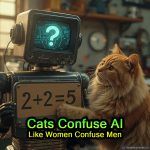AI’s DARK Secret #1AI Dependency Is Shrinking Human Intelligence
As AI rapidly replaces the workforce, making many trades obsolete, here comes a new study revealing an even darker consequence – cognitive decline. The early signs of what the future holds are here: AI isn’t just changing how we work; it’s altering who we are. Without physical intervention, our reliance on artificial intelligence is literally reshaping our brains – and not for the better.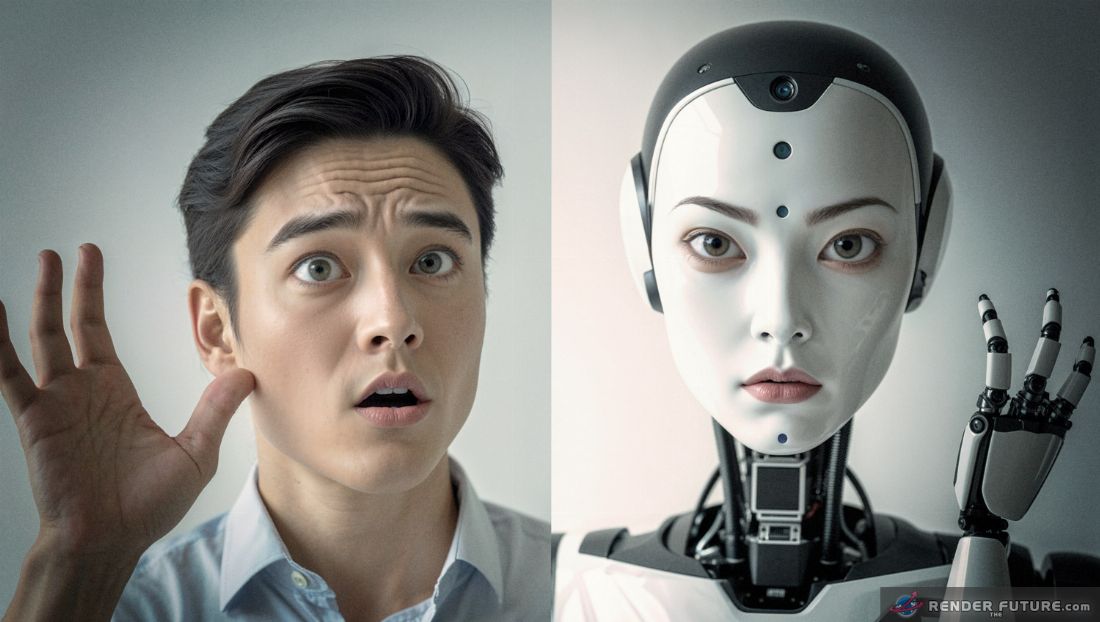 A groundbreaking MIT-led study has uncovered alarming evidence that frequent use of AI writing tools like ChatGPT weakens neural connectivity, impairs memory recall, and erodes critical thinking skills. The implications? A future where human intellect is outsourced to machines, leaving us mentally diminished.
A groundbreaking MIT-led study has uncovered alarming evidence that frequent use of AI writing tools like ChatGPT weakens neural connectivity, impairs memory recall, and erodes critical thinking skills. The implications? A future where human intellect is outsourced to machines, leaving us mentally diminished.
The Experiment: AI vs. Human Brainpower
Researchers at MIT Media Lab conducted a four-month experiment with 54 participants, dividing them into three groups:
- LLM Group – Used ChatGPT to write essays
- Search Engine Group – Relied on Google for research
- Brain-Only Group – Wrote essays with no external help
The results were staggering.
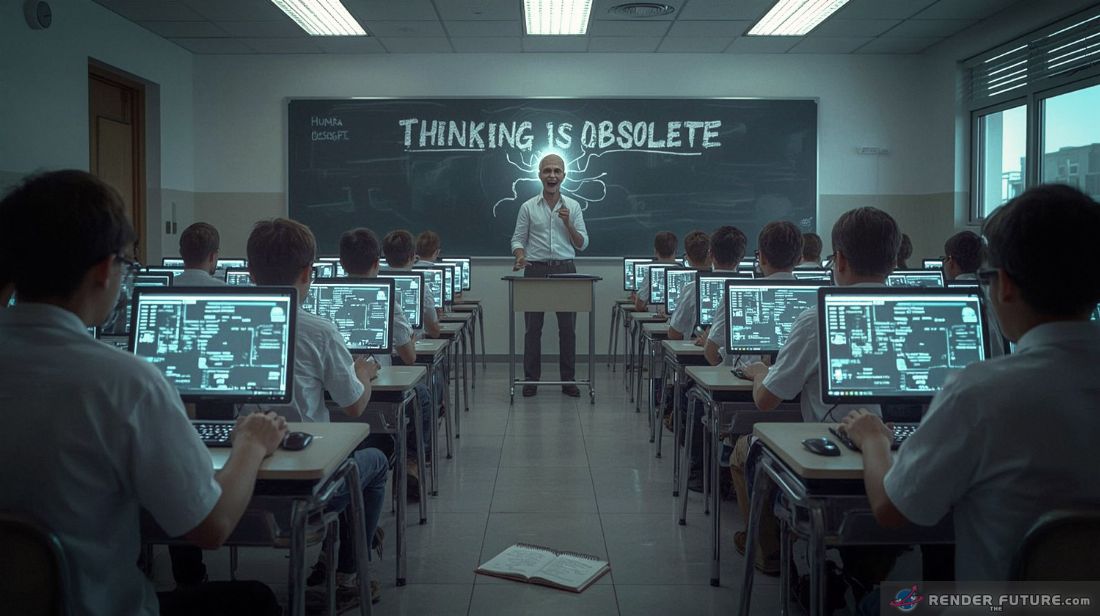 Brain Scans Don’t Lie
Brain Scans Don’t Lie
Using EEG brain activity monitoring, scientists found that AI users showed the weakest neural connectivity, while the Brain-Only group exhibited the strongest, most complex brain networks. The Search Engine group fell somewhere in between, proving that even traditional digital tools engage the brain more than AI.
The “Cognitive Debt” Phenomenon
When participants who had relied on AI were later asked to write without assistance (LLM-to-Brain group), their brain activity was significantly weaker compared to those who switched from unaided writing to AI (Brain-to-LLM group). This suggests that AI dependency creates a “cognitive debt” – our brains become lazier, struggling to re-engage critical thinking networks once they’ve been outsourced to machines.
The Consequences: Are We Engineering a Dumber Society?
1. Loss of Ownership and Memory: The Rise of the “AI Ghostwriter” Generation
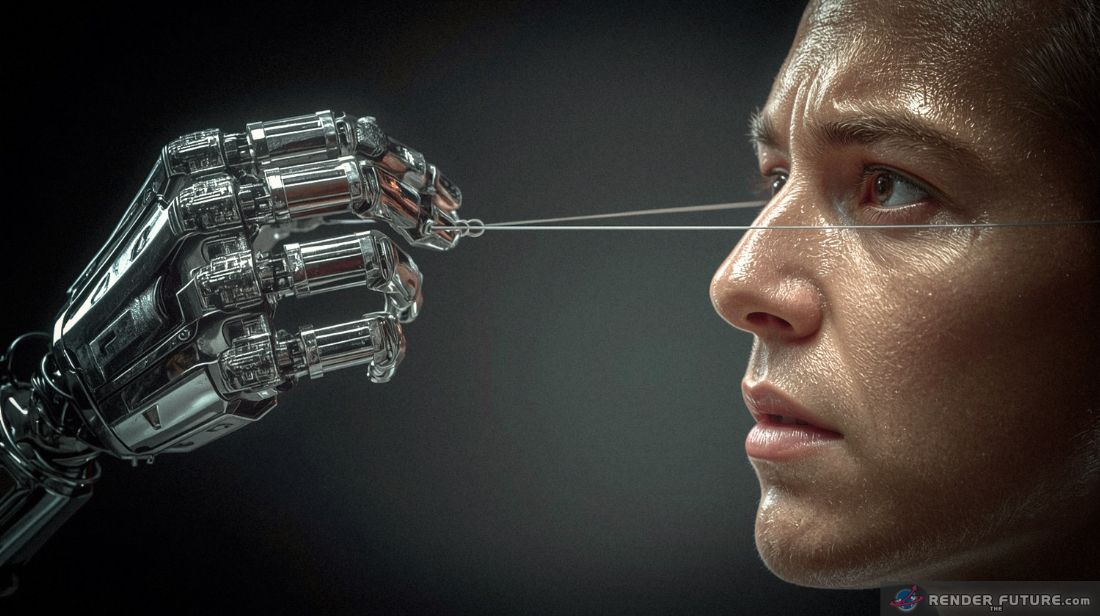 The study revealed something disturbing: participants who relied on AI couldn’t remember their own work. Minutes after writing an essay with ChatGPT, many struggled to recall key points or even recognize their own sentences when tested. Worse, they reported feeling disconnected from their writing – as if it wasn’t truly theirs.
The study revealed something disturbing: participants who relied on AI couldn’t remember their own work. Minutes after writing an essay with ChatGPT, many struggled to recall key points or even recognize their own sentences when tested. Worse, they reported feeling disconnected from their writing – as if it wasn’t truly theirs.
This isn’t just about memory lapses. It’s about identity erosion. When we outsource thinking to AI, we lose more than facts – we lose the sense of mastery that comes from struggling with, refining, and owning our ideas. Compare this to the Brain-Only group, who could effortlessly quote their essays and spoke passionately about their thought process. The difference? Engagement breeds retention; passivity breeds forgetfulness.
If this trend continues, we could face a future where people no longer trust their own minds, constantly second-guessing whether an idea was theirs or the AI’s.
2. Homogenized Thinking: The Death of Original Thought
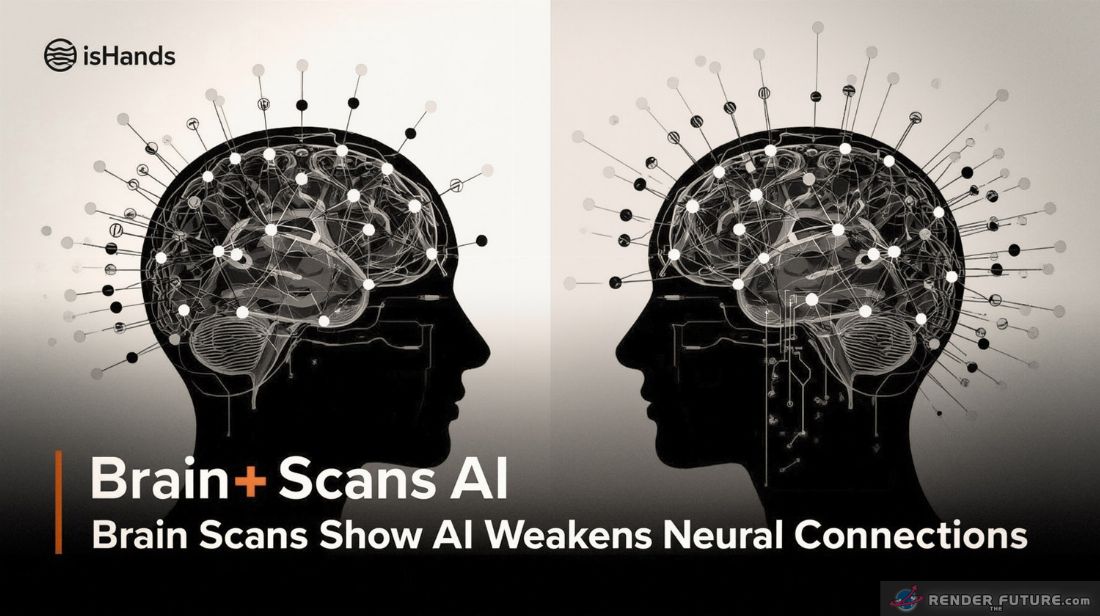 AI-generated essays had an eerie sameness – same phrases, same structures, same predictable arguments. Researchers found that ChatGPT’s output was statistically indistinguishable across participants, as if everyone was plagiarizing from the same invisible textbook.
AI-generated essays had an eerie sameness – same phrases, same structures, same predictable arguments. Researchers found that ChatGPT’s output was statistically indistinguishable across participants, as if everyone was plagiarizing from the same invisible textbook.
Human writing, on the other hand, was messy, personal, and full of surprises. One participant wrote about “happiness” as a fleeting moment of laughter with a sibling; another tied it to societal change. AI essays? Mostly generic platitudes about “joy” and “life satisfaction.”
This is more than a creativity problem – it’s a threat to cultural evolution. If AI becomes the default, we risk:
A monoculture of ideas (everyone parroting the same AI-approved perspectives)
Declining problem-solving skills (why wrestle with hard questions when ChatGPT gives a “good enough” answer?)
The extinction of intellectual rebellion (AI is trained on mainstream data – will it ever produce truly radical thinking?)
3. Education at Risk: Raising a Generation of “Prompt-Dependent” Thinkers
Schools are racing to adopt AI tools, but this study suggests they might be unknowingly sabotaging their students. The participants who used ChatGPT scored well initially – but over time, their critical thinking and retention plummeted.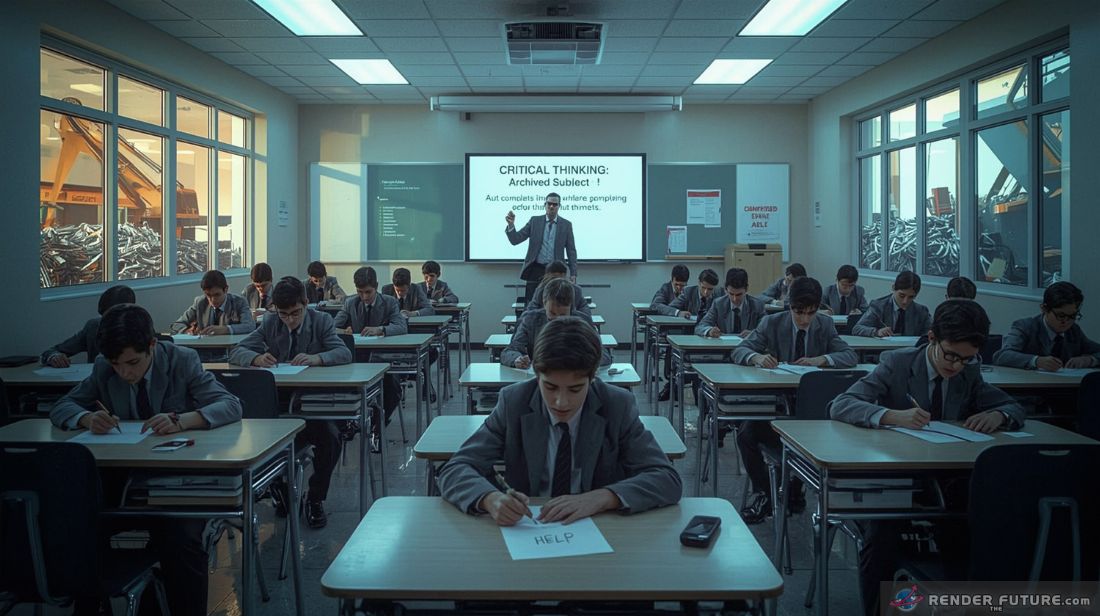 Visualize a classroom where:
Visualize a classroom where:
- Students can’t debate without AI-generated talking points
- Research papers are just stitched-together ChatGPT outputs
- Teachers can’t tell if a student understands an idea or just knows how to prompt an AI
The long-term effects could be catastrophic. We might produce graduates who are excellent at following instructions but helpless at original analysis. In a world where AI handles routine tasks, the most valuable skill won’t be knowing answers – it’s asking the right questions. Yet AI dependency teaches the opposite.
The Bottom Line: This Isn’t Just About Writing – It’s About Survival
The MIT study isn’t just warning us about lazy students or unoriginal essays. It’s revealing a fundamental shift in human cognition. If we outsource our thinking, we don’t just lose skills – we lose the ability to evolve.
History’s greatest breakthroughs came from minds that struggled, questioned, and diverged from the norm. Will AI help us – or turn us into a society of intellectual bystanders, watching as the machines think for us?
The clock is ticking.
Fighting Back: How to Preserve Our Brains
 Look, AI isn’t going anywhere – but that doesn’t mean we should hand over our brains without a fight. Think of it like fast food: convenient, sure, but you wouldn’t eat it for every meal. We need to carve out ‘mental gym time’ – writing by hand, debating without Google, even just staring at a blank page until our own ideas show up.
Look, AI isn’t going anywhere – but that doesn’t mean we should hand over our brains without a fight. Think of it like fast food: convenient, sure, but you wouldn’t eat it for every meal. We need to carve out ‘mental gym time’ – writing by hand, debating without Google, even just staring at a blank page until our own ideas show up.
It’s uncomfortable at first, like lifting weights after years on the couch, but that’s how we keep our minds from turning to mush. The future belongs to people who can still think, not just prompt.
Since AI is here to stay, we must use it wisely. Here’s how:
- Limit AI Dependency – Use AI as a supplement, not a crutch.
- Engage in Deep Work – Regularly challenge your brain with unaided tasks.
- Promote Analog Learning – Handwriting, discussions, and debates keep neural pathways strong.
The Future: Will We Still Think for Ourselves?
This study is a wake-up call. AI isn’t just a tool – it’s a force reshaping human cognition. If we’re not careful, we may wake up in a world where human intelligence is a relic of the past, replaced by the cold efficiency of machines.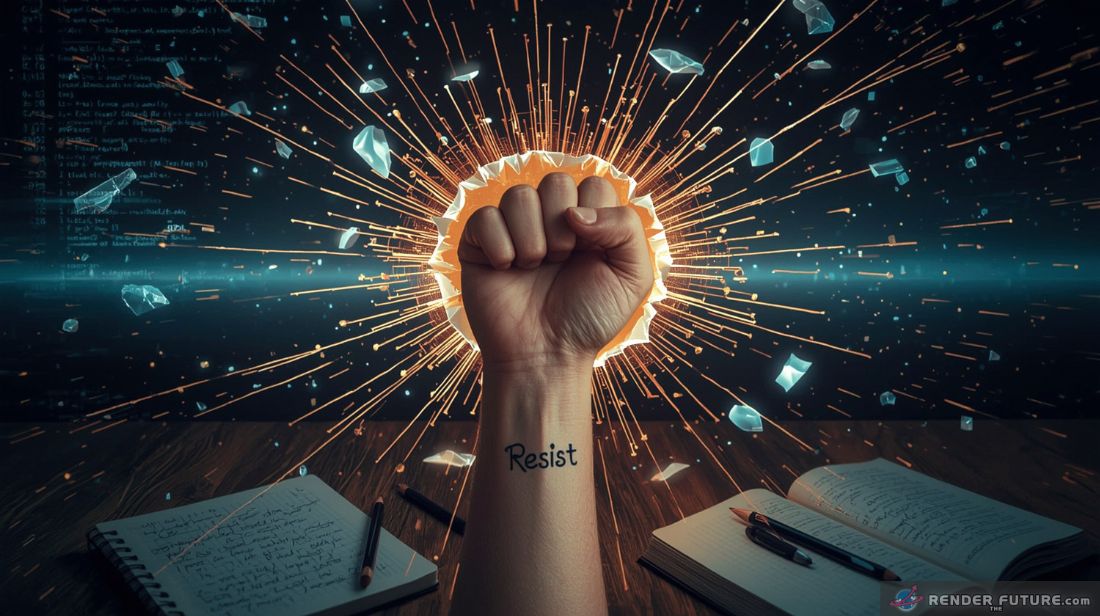
The choice is ours.
Will we let AI think for us – or
fight to keep our minds alive?

References and Sources
- MIT Media Lab Study: “Your Brain on ChatGPT” – A groundbreaking paper revealing how AI weakens neural connectivity and cognitive function.
- Nature: “The Cognitive Cost of Digital Dependency” – Research on how technology alters brain structure over time.
- Harvard Review: “AI and the Future of Human Intelligence” – Experts weigh in on the long-term risks of AI reliance.






